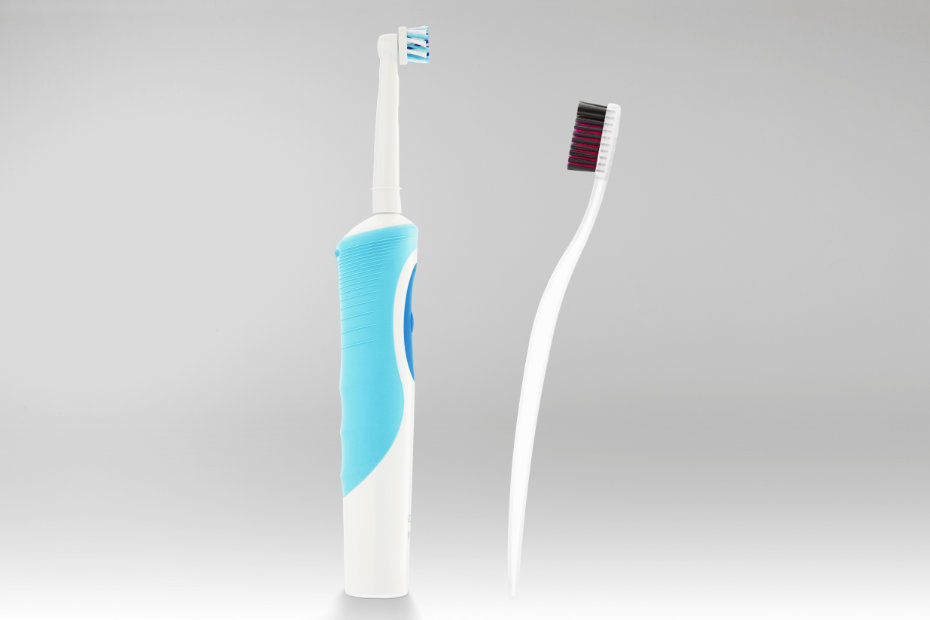For the amount of time you will be brushing your teeth in your lifetime, it’s important to have the right toothbrush. Both manual and electric toothbrush options have their advantages and disadvantages, and the best toothbrush for you depends on your oral health needs, lifestyle, and preferences. In this blog, we’ll break down the differences, benefits, and expert advice to help you choose the best toothbrush for healthy teeth and gums.
Manual Toothbrush
Advantages:
- Widely available
- Cost-effective
- Easy to travel with – no batteries or charging needed
- Full control over pressure and motion
Potential Disadvantages:
- Requires good technique to clean effectively
- Easier to brush too hard, which can cause gum recession or enamel wear
- No timer or built-in reminders, which may lead to under-brushing
Best for: Those with strong brushing habits and looking for a budget-friendly option.
Electric Toothbrush
Advantages:
- Oscillating or sonic technology helps remove more plaque than manual brushes
- Built-in timers ensure you brush for the recommended two minutes
- Gentle on gums with consistent pressure and motion
- Great for people with limited mobility, braces, or receding gums
Potential Disadvantages:
- Higher cost upfront and ongoing replacement brush head expenses
- Requires charging or batteries
- May feel bulky or noisy to some users
Best for: Those who need help improving their brushing technique or have specific dental concerns like gingivitis or braces.
What Do Dentists Recommend?
Most dentists agree that it’s not only about the toothbrush you choose, but it’s also about how you use it. If you:
- Brush twice a day for two minutes
- Use fluoride toothpaste
- Replace your toothbrush or brush head every 3 months
… then both manual and electric toothbrushes can be effective.
However, studies do show that electric toothbrushes tend to reduce plaque and gingivitis more effectively over time – especially for patients who struggle with manual brushing techniques.
In conclusion, there’s no one-size-fits-all answer. For many people, electric toothbrushes offer better long-term benefits, especially in improving brushing consistency and plaque control. However, a manual toothbrush can still do an excellent job when used properly. here are many pros and cons for manual and electric toothbrushes, but our best advice is for to choose the brush you’re most likely to use effectively — and consistently. If you’re unsure which toothbrush is right for you, ask your dentist during your next check-up. We can guide you based on your oral health, brushing habits, and specific concerns like tooth sensitivity or gum health. Looking to book an appointment with our professional and friendly team? Contact us today!

